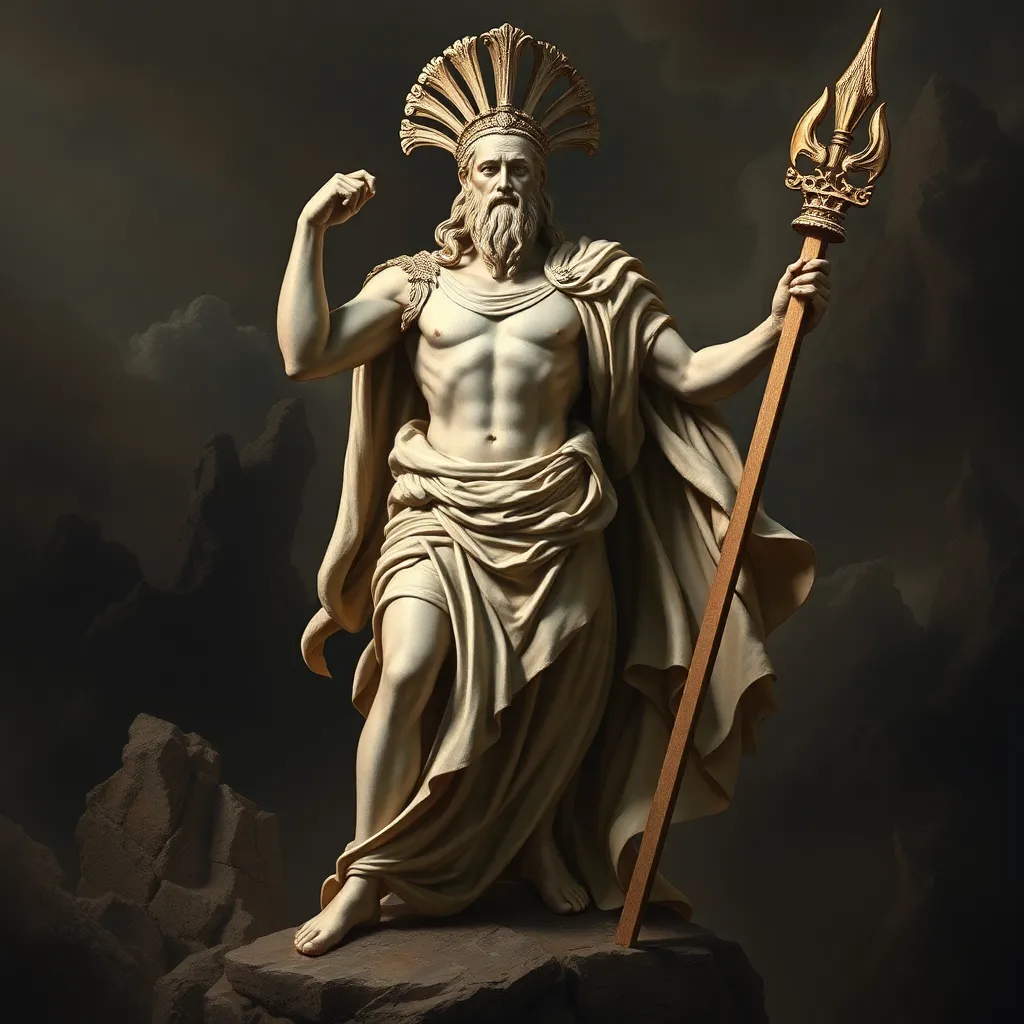The Role of Perseus in the Context of Greek Mythological Archetypes
I. Introduction
Greek mythology is a rich tapestry of stories that not only entertain but also serve to explain the world around us. It is filled with gods, heroes, and mythical creatures, each representing various human traits and experiences. Among these figures, Perseus stands out as a key hero whose adventures and characteristics embody essential archetypes within these myths.
This article aims to explore Perseus through the lens of mythological archetypes, delving into his role as a hero, the influence of his mentors, and the significance of his adversaries and companions. By analyzing these aspects, we can gain a deeper understanding of Perseus’s impact on Greek mythology and the narratives it has inspired.
II. Understanding Mythological Archetypes
Mythological archetypes are recurring symbols or motifs that represent universal patterns of human nature and experience. They play a crucial role in storytelling, allowing audiences to connect with characters and their journeys on a deeper level.
Some common archetypes in Greek mythology include:
- The Hero: A character who embarks on an adventure, faces trials, and ultimately achieves a significant goal.
- The Mentor: A wise figure who guides and supports the hero.
- The Shadow: A representation of the hero’s darkest fears or challenges, often embodied in antagonistic characters.
- The Feminine: Female characters who play essential roles in the hero’s journey, often symbolizing love, conflict, or wisdom.
These archetypes help us understand character roles and narrative structures, making it easier to analyze the stories and their meanings.
III. Perseus as the Hero Archetype
Perseus is a quintessential example of the hero archetype. He embodies the traits of bravery, intelligence, and determination, making his journey compelling and relatable.
His story begins with humble origins, as the son of Zeus and Danaë, who was initially imprisoned by her father, King Acrisius. Perseus’s journey towards heroism includes:
- Facing Challenges: Acrisius, fearing the prophecy that he would be killed by his grandson, sends Danaë and Perseus away in a chest.
- Receiving Divine Aid: With the help of gods like Athena and Hermes, Perseus acquires the tools necessary to confront formidable foes.
- Slaying Medusa: One of his most famous feats, Perseus beheads Medusa, a creature whose gaze turns men to stone, symbolizing his triumph over fear and adversity.
These adventures highlight Perseus’s growth from a boy into a legendary hero, showcasing the qualities that define the archetype.
IV. The Role of the Mentor in Perseus’s Story
Mentorship is a vital aspect of the hero’s journey in mythology. In Perseus’s tale, several key figures serve as mentors, guiding him toward success.
Athena and Hermes are the most notable mentors in Perseus’s life:
- Athena: The goddess of wisdom provides Perseus with a polished shield to use as a mirror to avoid Medusa’s petrifying gaze.
- Hermes: The messenger god gifts him with winged sandals, a helm of invisibility, and a sword capable of beheading Medusa.
The support and wisdom provided by these mentors are crucial to Perseus’s development and ultimate success in his quests, emphasizing the importance of guidance in achieving greatness.
V. The Shadow Archetype: Medusa and Its Significance
The shadow archetype represents the darker aspects of the hero’s journey, often embodied by antagonists. In Perseus’s story, Medusa serves as the primary shadow figure.
Medusa is not just a monster to be slain; she embodies several symbolic meanings:
- Fear and Cowardice: Medusa’s ability to petrify those who gaze upon her represents the fears that can paralyze individuals.
- Transformation: Once a beautiful maiden, her transformation into a monster reflects themes of loss and the consequences of divine wrath.
Confronting and overcoming Medusa symbolizes Perseus’s journey toward self-discovery and mastery over his fears, making her a vital part of his narrative.
VI. The Feminine Archetype: Andromeda’s Role
The feminine archetype plays a significant role in Greek mythology, often representing love, conflict, or wisdom. In the story of Perseus, Andromeda is a critical figure who complements his heroic journey.
Andromeda is the daughter of Cassiopeia and Cepheus, who is sacrificed to a sea monster due to her mother’s hubris. Perseus’s relationship with her is significant because:
- Rescue and Redemption: Perseus saves Andromeda from the monster, symbolizing the hero’s role as a protector and champion.
- Partnership: Their union represents the balance of male and female energies, essential in many mythological narratives.
Andromeda’s story enriches the narrative of Perseus, reinforcing themes of love, sacrifice, and the importance of companionship in the hero’s journey.
VII. The Legacy of Perseus in Mythological Narratives
The legacy of Perseus extends beyond his own myths, influencing the narratives of subsequent heroes and stories within Greek mythology.
His adventures and characteristics can be compared to other heroes such as:
- Heracles: Both heroes undertake seemingly impossible tasks and face formidable foes, but while Heracles often represents brute strength, Perseus embodies cunning and cleverness.
- Theseus: Like Perseus, Theseus is a hero who faces monsters and uses both strength and intelligence to achieve his goals.
The evolution of Perseus’s archetype can also be seen in later literature and art, where his stories continue to be retold and reinterpreted, emphasizing the timeless nature of his character.
VIII. Conclusion
Perseus’s role in Greek mythology is significant, not only as a hero who slays monsters but as a representation of various archetypes that resonate with human experiences. His journey encapsulates the essence of the hero’s journey, mentorship, and the struggle against one’s inner fears.
The enduring relevance of Perseus’s archetype in contemporary storytelling highlights the universal themes found in Greek mythology. Studying figures like Perseus allows us to connect with our own narratives and the archetypes that shape our understanding of heroism, love, and sacrifice.
As we delve deeper into the myths of ancient Greece, we uncover the profound lessons they offer, making them as relevant today as they were thousands of years ago.




